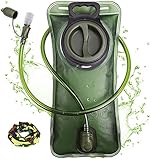
When it comes to our beloved furry companions, we often find ourselves seeking answers to various questions about their health and well-being. One common concern that pet owners have is regarding how long their Shih Tzus can go without needing to relieve themselves. While each dog is unique and may have different biological needs, it is important to take into consideration the specific breed characteristics.
Shih Tzus, also known as “lion dogs,” are small and charming creatures that captivate us with their adorable looks and friendly demeanor. However, their petite size may leave some wondering about their bladder capacity. It is essential to understand the physiological aspects of these dogs to ensure their comfort and overall health.
The bladder of a Shih Tzu, like any other dog, needs to be emptied regularly to prevent discomfort and potential health issues. Understanding how long they can hold their urine is crucial in creating a suitable routine and environment for our furry friends. Factors such as age, diet, exercise, and overall health can play a significant role in determining the length of time a Shih Tzu can hold their bladder.
Factors Affecting Bladder Control in Shih Tzus
Bladder control in Shih Tzus can be influenced by various factors that go beyond just the duration of time they can hold their bladder. Understanding these factors is crucial for maintaining and improving the overall bladder health of this breed.
1. Age: Age plays a significant role in a Shih Tzu’s bladder control. Just like humans, puppies have less bladder control compared to adult dogs. As they grow, their bladder muscles strengthen, allowing them to hold urine for longer periods of time.
2. Size and Gender: The size and gender of a Shih Tzu can affect bladder control. Smaller-sized Shih Tzus generally have smaller bladders, which may result in more frequent urination. Moreover, females may have weaker bladder control due to their reproductive anatomy.
3. Health Conditions: Certain health conditions can impact a Shih Tzu’s bladder control. Urinary tract infections, bladder stones, and bladder muscle weakness can lead to increased frequency of urination or even incontinence.
4. Diet and Hydration: Diet and hydration are essential for maintaining good bladder health. A balanced and appropriate diet, along with sufficient water intake, can contribute to better bladder control in Shih Tzus. Additionally, certain foods or ingredients might act as diuretics, increasing urine production and affecting bladder control.
5. Exercise and Routine: Regular exercise and a consistent routine can have a positive impact on a Shih Tzu’s bladder control. Physical activity helps strengthen the bladder muscles and promote regular urination patterns. Establishing a predictable routine for feeding and bathroom breaks can also aid in bladder control training.
6. Training and Socialization: Proper training and socialization can influence a Shih Tzu’s bladder control. Basic obedience training, including potty training techniques, can teach them to hold their bladder for longer periods. Additionally, socialization can help reduce anxiety or stress-related accidents.
Tips for Enhancing Shih Tzus’ Bladder Control
Discover effective strategies to promote improved bladder control in your beloved Shih Tzus. By implementing a range of techniques and recommendations, you can assist them in extending the duration between bladder relief.
1. Consistent Routine: Establishing a regular schedule for feeding, drinking, and bathroom breaks can help condition the bladder muscles of your Shih Tzus. Gradually increase the time intervals between breaks to encourage longer periods of bladder control.
2. Adequate Hydration: Ensure your Shih Tzus receive sufficient water throughout the day. Adequate hydration supports bladder health and encourages a stronger bladder capacity. Monitor their water intake to strike the right balance between hydration and excessive urination.
3. Supporting the Right Diet: Opt for a high-quality, balanced diet that provides adequate nutrients and fiber to support optimal digestion and urinary health. Avoid feeding them food that may lead to frequent urination or irritation of the bladder.
4. Regular Exercise: Engage your Shih Tzus in regular physical activities to promote overall muscle tone, including the muscles responsible for bladder control. Regular exercise also aids in maintaining a healthy weight, reducing the risk of urinary issues.
5. Positive Reinforcement Training: Apply positive reinforcement techniques when your Shih Tzus exhibit good bladder control behavior. Rewarding them for holding their bladder for longer durations helps reinforce the desired behavior.
6. Careful Monitoring: Keep an eye on your Shih Tzus’ behavior and bathroom habits. Watch out for signs of restlessness, pacing, or frequent trips to the bathroom, which may indicate the need for a bathroom break. Timely recognition and response can facilitate better bladder control.
Note: It is essential to consult with a veterinarian for personalized advice and guidance on your Shih Tzus’ specific needs and any underlying health conditions that may affect their bladder control.
Common Issues and Solutions for Bladder Control in Shih Tzus
When it comes to the ability of Shih Tzus to control their bladder, there are various common problems that owners may encounter. This section will discuss some of these issues and present potential solutions to help Shih Tzus maintain proper bladder control.
| Issue | Solution |
| 1. Frequent Urination | To address frequent urination in Shih Tzus, it is important to establish a consistent bathroom routine. Take your dog outside to the designated area regularly, providing ample opportunities for them to relieve themselves. |
| 2. Incontinence | If your Shih Tzu is experiencing incontinence, it is advisable to consult with a veterinarian. They can determine the underlying cause and recommend appropriate treatments such as medication or behavioral modifications. |
| 3. Urinary Tract Infections | To prevent urinary tract infections in Shih Tzus, ensure that they have access to fresh and clean drinking water at all times. Additionally, promote regular hygiene by keeping the genital area clean and grooming the fur to prevent bacterial growth. |
| 4. Age-related Changes | As Shih Tzus age, changes in bladder control may occur. Providing ample potty breaks and implementing a senior-friendly diet can help manage these changes. Consulting with a veterinarian for additional guidance is recommended. |
By understanding and addressing common problems associated with bladder control in Shih Tzus, owners can ensure the well-being and comfort of their beloved pets. Remember to consult with a veterinarian for individualized advice and guidance based on your specific situation.
The Significance of Regular Restroom Breaks for Shih Tzus
Ensuring that our beloved shih tzus are provided with regular opportunities to relieve themselves is of utmost importance in promoting their overall well-being and maintaining a healthy bladder function. Properly timed bathroom breaks are crucial for these small and affectionate canines to prevent discomfort, potential health issues, and to maintain cleanliness within our homes.
Prevent discomfort
Just like humans, shih tzus have limited bladder capacity and need to empty it periodically to avoid discomfort. Holding urine for prolonged periods can lead to bladder irritation, urinary tract infections, and even painful urinary stones. By establishing a consistent restroom schedule, we can ensure that our furry friends do not experience any unnecessary discomfort.
Maintain bladder function
Regular bathroom breaks play a vital role in maintaining optimal bladder function for shih tzus. Frequent elimination helps in preventing the development of weak bladder muscles or loss of bladder control, known as urinary incontinence. Additionally, providing these breaks helps to establish a regular urinary routine, allowing their bodies to efficiently control and empty their bladders.
Emphasize the need for consistency and routine
By incorporating regular bathroom breaks into our shih tzus’ daily routines, we can effectively contribute to their comfort and promote their overall bladder health.










